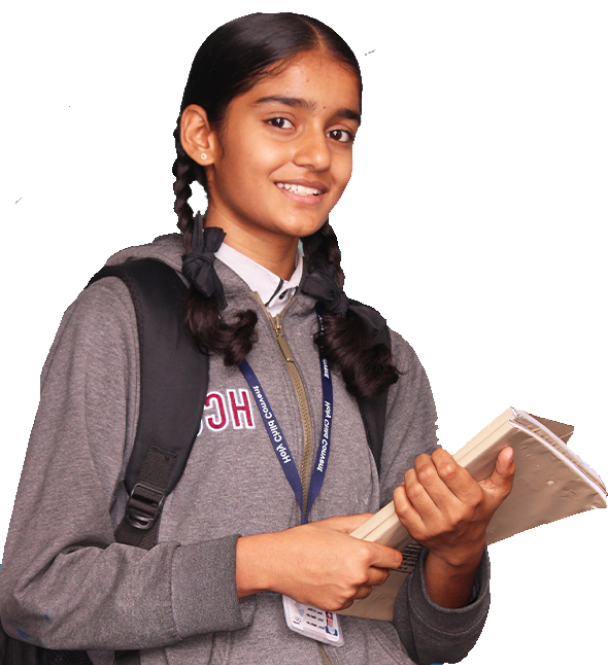- Monday – Saturday
- +91 080266 08485
- info@holychildconvent.com

Admissions open for
2024-25
For Queries, Contact
+91 9945482226
For Queries, Contact
+91 9945482226
Impact Of Social Media On Students
In the rapidly evolving landscape of education, the integration of social media has become a defining factor in shaping the experiences of students within the school environment impact of social media on students like Facebook, Instagram, Twitter, and others has ushered in a new era of connectivity, communication, and information sharing.
While these tools offer unprecedented opportunities for learning and socialization, they also pose unique challenges that demand careful consideration. This exploration delves into the multifaceted impact of social media on students in schools, unravelling the complexities that arise at the intersection of technology, education, and adolescent development.
From academic performance to emotional well-being, the implications of social media reach far and wide, influencing the very fabric of student life within educational institutions.
The impact of social media on students is multifunctional, it depends on the individual’s mindset as well as some key aspects play a significant role in the students.
COMMUNICATION AND SOCIALIZATION: Social media facilitates communication among students, fostering connections beyond the classroom. However, it can also lead to issues like cyberbullying and peer pressure.
ACADEMIC PERFORMANCE: The impact of social media on students lives can vary from educational resources as well as significant distractions, affecting students’ focus and study habits.
EMOTIONAL WELL-BEING: Exposure to social media can influence students self-esteem and mental health. The comparison culture and cyberbullying can contribute to stress and anxiety.
INFORMATION ACCESS: The impact of social media on students provides quick access to information, enabling students to stay updated on current events and educational content. However, discerning reliable information is crucial.
PERSONAL DEVELOPMENT: The impact of social media on students is focused on the usage of social media platforms for self-expression and exploration of interests. Conversely, it may also expose them to potentially harmful content.
CYBER ETIQUETTE AND DIGITAL LITERACY: The impact of social media on students lives can vary from the usage in school necessities teaching students about responsible online behavior, digital literacy, and the importance of maintaining a positive online presence
TEACHER-STUDENT INTERACTION: Social media platforms can enhance communication between teachers and students outside the classroom. This can facilitate learning and support but requires proper guidelines to maintain professional boundaries.
COMMUNITY BUILDING: The impact of social media on students in India enables the creation of virtual communities within schools, fostering collaboration, information sharing, and a sense of belonging.
The surge in social media usage among students in schools has brought the negative impact of social media on students, raising concerns about the overall well-being and academic performance of the younger generation.
One prominent challenge is the detrimental effect on concentration and focus. With the constant increase of notifications, messages, and updates, students often navigate a digital landscape that competes for their attention, potentially leading to reduced concentration during class hours and diminished study habits which results in the negative impact of social media on students.
The culture of comparison on social media platforms can significantly impact students’ self-esteem and mental health. The curated nature of the content, coupled with the pressure to conform to societal ideas, can contribute to feelings of inadequacy and anxiety among students.
The quest for validation through likes and comments can create a distorted sense of self-worth, fostering an environment where popularity on social media becomes a metric for personal success.
Cyberbullying is another grave concern associated with the impact of social media on students in India, posing a direct threat to the emotional well-being of students. The anonymity provided by online platforms allows individuals to engage in harmful behaviour, including harassment and spreading false information.
The repercussions of cyberbullying can extend beyond the virtual realm, permeating the school environment and negatively affecting the victim’s mental health, academic performance, and overall sense of safety.
Social media’s influence on academic performance cannot be overlooked. While these platforms offer access to a wealth of information, they also serve as potential distractions. The temptation to scroll through timelines or engage in unrelated online activities during study hours can lead to a decline in academic focus and productivity.
As students juggle social media demands alongside their educational responsibilities, striking a balance becomes increasingly challenging which showcases the impact of social media on students in India.
The digital divide extends the inequalities among students, those with limited access to technology may feel excluded or disadvantaged, widening the gap in educational opportunities.
The negative impact of social media on students in schools manifests in various forms, from diminished concentration and cyberbullying to the erosion of self-esteem. Recognizing these challenges is essential for educators, parents, and policymakers to collaboratively develop strategies that promote responsible social media usage, foster digital literacy, and create a supportive environment that nurtures the holistic well-being of students.
The impact of social media on students in India has a big effect on the youth of the country, bringing both good things and challenges. On the bright side, social media platforms help students learn more as they can find lots of information and share knowledge outside their regular classes.
Social media can be a big distraction for students, with so many notifications and interesting things to do online, it is easier to lose focus on studies. They have to find a balance between using social media and doing well in their studies.
Among the impact of social media on students in India, connecting has been made easier. They form groups online that go beyond their schools, content as well as study material can be sent smoothly to each other.
India’s diverse culture adds an interesting twist to social media. Students can use platforms in their regional languages, celebrate traditions and share different points of view.
This is good for expressing identity, but it can also create cultural tensions. We need to be careful about stereotypes and make sure everyone feels included.
It helps them learn more and connect with diverse cultures, but there are challenges like distractions and online issues that need attention. Balancing the positives and dealing with the challenges can make social media a better tool for students in India.
Finding the Perfect School for Your Child is crucial, and Holy Child Convent stands out as a beacon of academic excellence and holistic development. With a nurturing environment, experienced faculty, and a commitment to character formation, Holy Child Convent ensures your child receives not just education, but a foundation for a successful future.
Quick Links
Contact
1133/44, 9th Cross Road,
Ashok Nagar, Banashankari I Stage ,
Bengaluru,Karnataka - 560050
Primary School- +91 80 26608485
High School- +91 80 26600061
-
1133/44, 9th Cross Road,
Ashok Nagar, Banashankari I Stage ,
Bengaluru,Karnataka - 560050 -
Primary School- +91 80 26608485
High School- +91 80 26600061 - info@holychildgmail.com
